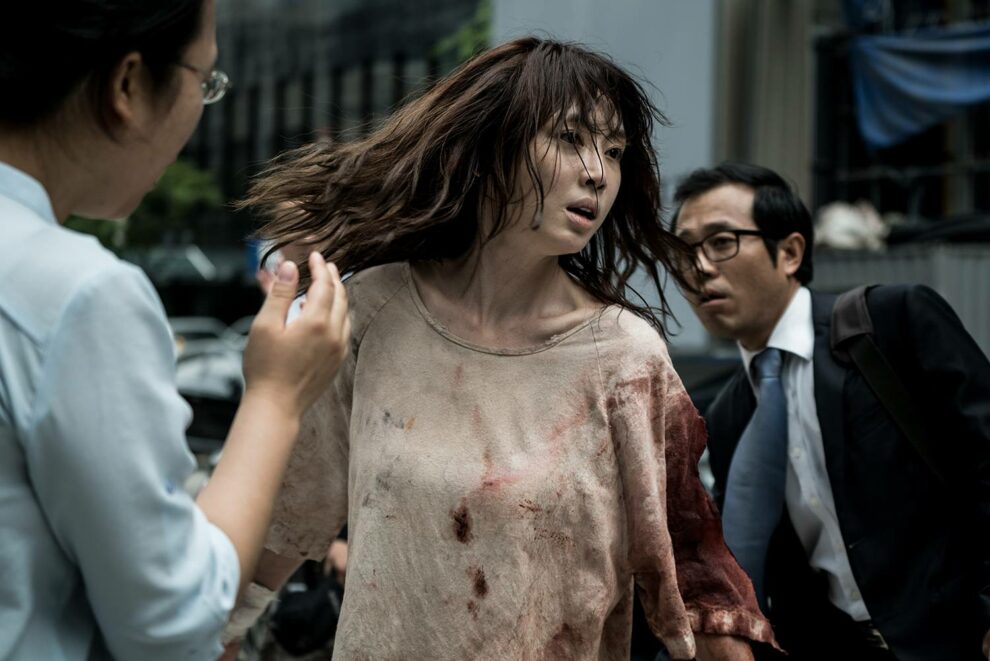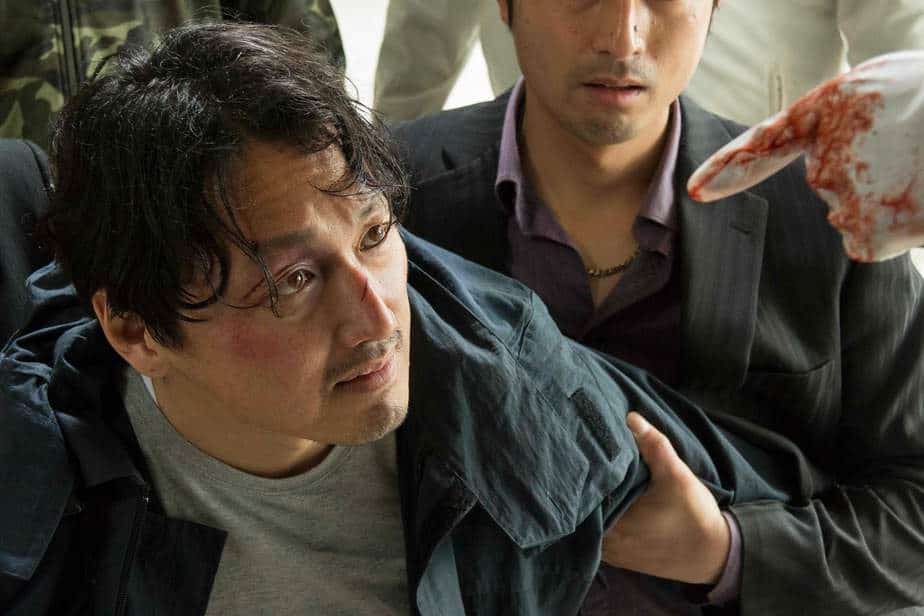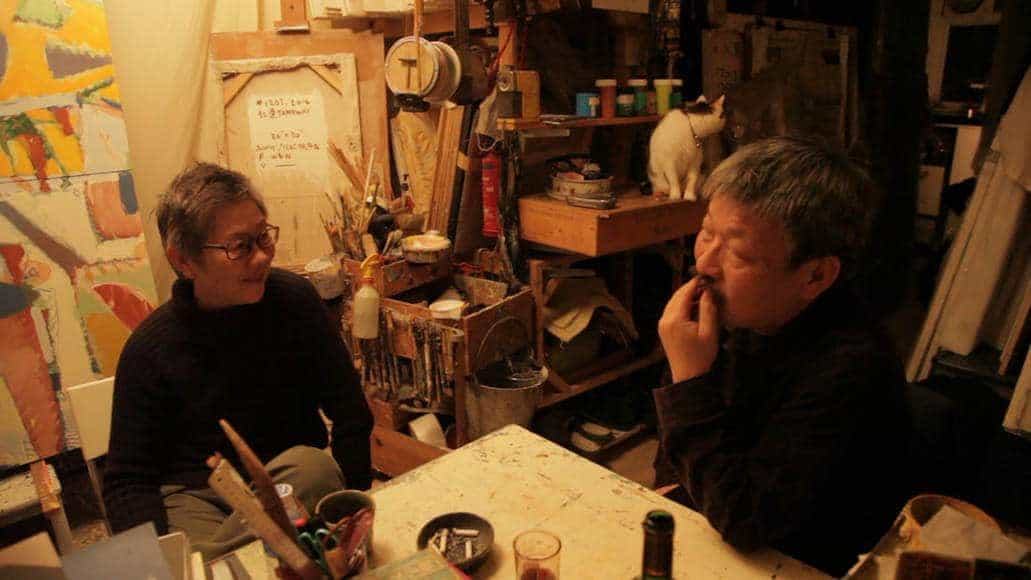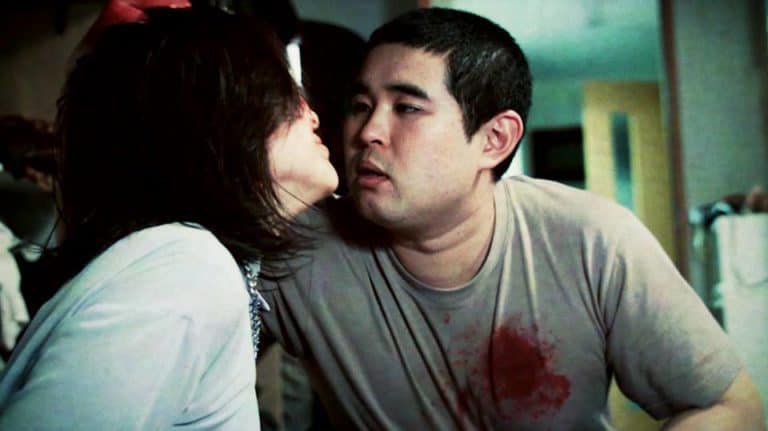Combining the crime thriller with horror always sounds like a good idea to attract audiences, although the combination is not exactly easy to pull off. Lee Chul-ha does try to combine the two artfully in “Insane”, resulting in a movie, though, that starts with the latter, only for the former to eventually take over. Let us take things from the beginning though.
“Insane” is available from Echelon Studios and can be watched for free on Plex

The film begins with Soo-a, a young woman, being taken away against her will in the middle of the city and during the day, and eventually brought to a psychiatric hospital. She is there without knowing why and her questions never receive answers, with the staff in the hospital constantly injecting her with drugs, at least when they are not mishandling her. Eventually, she starts writing what is happening in a diary.
The scene then changes completely, as the center stage is taken up by star-producer Nam-su, who is the presenter of an investigative crime show, as he is being interviewed on TV. The show, however, is interrupted when a scandal involving him comes up, which essentially ruins his career. One year later, a jobless Nam-su is offered a job as the host of a show on supernatural phenomena, which he reluctantly takes up. An episode in a burnt down psychiatric hospital ends up with him getting his hands on a partially burned notebook, which turns out to be (surprise, surprise) Soo-a's. Nam-su then gets obsessed with the case and begins investigating, in an effort both to save the girl and become the center of attention once more. As his research takes him closer and closer to Soo-a, he realizes he has stumbled upon a case far beyond anything he imagined.
Check also this interview
Lee Chul-ha creates an amalgam of elements, in an effort to make a story that is both captivating in the way it unfolds and includes a number of social and philosophical comments. In that regard, the system and particularly the way psychiatric institutions work are immediately “designated” as the villains in the story, with the same applying to the way show business works, where people can turn from heroes to zeroes in the blink of an eye. Furthermore, regarding the second aspect, the concept of offering to the viewers what they want to see at any cost is also criticized significantly. Moreover, Lee deals with the human psyche, and how it is very difficult to really know who or what each person is, with this aspect actually being the main source of mystery in the movie.
Apart from context, though, Lee also manages to create a rather appealing atmosphere of disorientation, particularly after Nam-su discovers the diary. His effort to investigate the fire and Soo-a's incarceration are eventually led into a struggle to set her free, which is juxtaposed with what happened and what is happening in the asylum, with the back-and-forths in time and person of focus working quite well for the narrative. In that fashion, Steve M. Choe and Woo-Hyun Kim's editing emerges as one of the best aspects of the movie, both in the placement of the timelines and the overall, fast pace, that suits the thriller aesthetics of the movie to perfection. On the other hand, some of the twists close to the end could have been handled somewhat better, as the main one in particular is both expected and a bit cliched. This however, does not harm the overall impression the story leaves, which is quite intriguing to follow.
Kim Min's cinematography is fittingly polished outside the asylum and more gritty inside, with the violent scenes frequently exhibiting a horrific and grotesque sense that adds to the horror aspect of the movie.
Kang Ye-won as Soo-a is great in the role of the victim throughout the movie, with the scenes where she lashes out being among the most memorable in the movie. Lee Sang-yoon as Nam-su is also good in the way he portrays his obsession, disappointment, and intense struggle.
“Insane” does not exactly reinvigorate the genre, but is well-written, well shot, well-acted, and presents a rather intriguing story that unfolds into a number of levels, thus resulting in a very appealing production.















